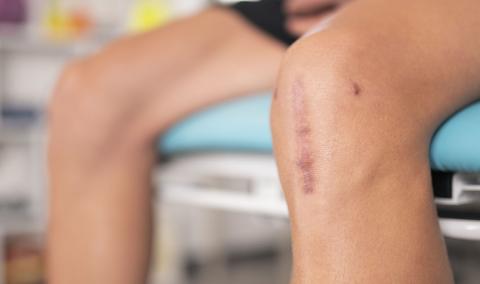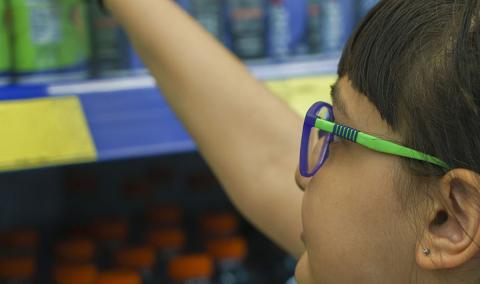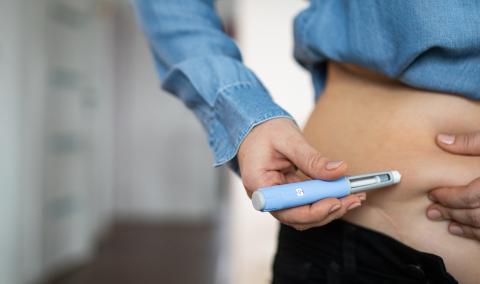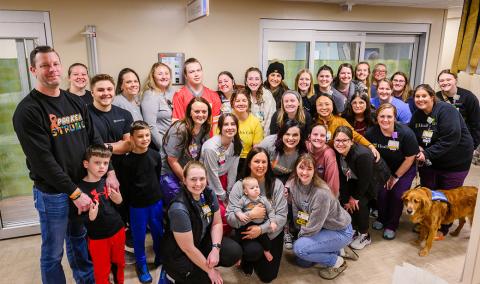As you grow older, early detection of bone loss is key to keeping your bones healthy and preventing fractures. At MU Health Care, we offer DEXA scans to measure bone density and assess your risk for bone diseases like osteoporosis.
As bones become less dense, they become more brittle and less able to absorb impact. When you have low bone density, minor falls or bumps may affect you far more than those with high bone density.
A DEXA scan is an X-ray imaging test that looks at minerals in your bones. Bone minerals are what give bones strength. Generally, the higher your bone minerals, the denser and stronger your bone.
We may use this test to:
- Diagnose osteoporosis or osteopenia
- Track your bone loss over time
- Understand your baseline bone density before beginning a treatment that can weaken your bones as a side effect
Am I a Candidate for a DEXA Scan?
You may be a candidate for a DEXA scan if you are:
- A woman 65 or older, or a man 70 or older
- A woman or man younger than 70 or over the age of 50 who has broken a bone or has a heightened risk for future fractures
Risk Factors for Bone Density Issue
Some common risk factors for bone density issues include:
- A family history of osteoporosis or fractures
- Smoking or excessive alcohol consumption
- Chronic conditions such as rheumatoid arthritis or celiac disease
- Medical treatments or medications, like corticosteroids, that affect bone health
- Low body weight or a small body frame
- A diet low in calcium and vitamin D
What to Expect With a DEXA Scan?
At MU Health Care, our radiologists and bone health specialists collaborate closely to best understand your bone health. We also use the latest technologies that allow us to detect even the smallest changes in bone mineral density. There are no needles or injections in this test, and you won't need to stay in the hospital afterward.
Before a DEXA Scan
Before the scan, you can typically eat and drink as usual. In most cases, you can also continue taking your regular medications, unless your doctor instructs otherwise.
It’s best to wear loose-fitting clothing without metal zippers or buttons. You may also need to remove jewelry or accessories that could interfere with the scan.
During a DEXA Scan
Your bone density test may take about 30 minutes to complete, though it may take longer, depending on the number of bones being scanned. Here's what you can expect during the scan:
- You will lie on a special X-ray table.
- Your radiologist may position your body with props, like foam blocks or cushions, to get the clearest images possible.
- Your radiologist will slowly pass a scanning arm over your body to take pictures of your bones.
After a DEXA Scan
After the scan is complete, your radiologist will analyze the images and determine your bone density results. These results will often be reported as a T-score. The closer to zero your T-score is (including being a positive number), the stronger your bones are:
- When your T-score is between 0 and -1, you have healthy bone density.
- When your T-score is between -1 and -2.5, you have low bone density, also called osteopenia, which can increase your risk of developing osteoporosis.
- When your T-score is -2.5 or lower, you have weaker bones, also called osteoporosis, which increases your risk of breaking a bone.
Your radiologist will share your results with your doctor. Then, you and your doctor can discuss the next best steps to keep or strengthen your bone health.
Related Conditions & Treatments
- Chiropractic Care
- Bone Density DXA Scan
- Elbow Pain
- Foot and Ankle Pain
- Bone Health Program
- Hand and Wrist Pain
- Hip Pain
- Joint Health Program
- Knee Pain
- Limb Preservation Program
- Musculoskeletal Tumors
- Orthopaedic Rehabilitation
- Orthopaedic Trauma
- Pediatric Orthopaedics
- Physical Therapy
- Regenerative Orthopaedics
- Sarcomas
- Shoulder Pain
- Sports Medicine
- Carpal Tunnel Syndrome
- Hip Arthritis
- Osteoporosis
- Osteoarthritis
- Knee Replacement Surgery
- Ankle Replacement Surgery
- Hip Replacement Surgery



























